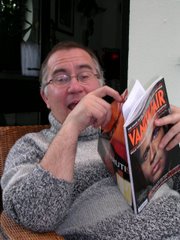WHEN Gershwin's “Rhapsody in Blue” had its première in 1924, at a concert in New York that was billed as “An Experiment in Modern Music”, the audience included Rachmaninov and other big names from the classical world. By all accounts, the experiment was a success. It established that jazz could be worthy of the concert hall. Four years later in Europe, Gershwin met more of his new admirers, including Stravinsky, Ravel, Prokofiev and two composers of the revolutionary Second Viennese School, Schoenberg and Berg. Awed by Berg, Gershwin hesitated at the piano one night, nervous about playing his catchy songs before one of the deconstructors of conventional harmony. Berg sternly encouraged him: “Mr Gershwin, music is music.”

If only it were that simple, writes Alex Ross, the New Yorker's music critic, in his history of music in the 20th century. He notes that musical life in the past 100 years has “disintegrated into a teeming mass of cultures and subcultures, each with its own canon and jargon.” The cultures may sometimes meet on affable terms, but the results can be comic in their incongruity. In the 1930s, when much of the European artistic elite was holed up in Hollywood, Fanny Brice, a comedienne, strolled over to Schoenberg at a dinner given by Harpo Marx: “C'mon, professor, play us a tune.”
Continues ...
Twentieth-century music Music, war and politics intertwined Economist.com




